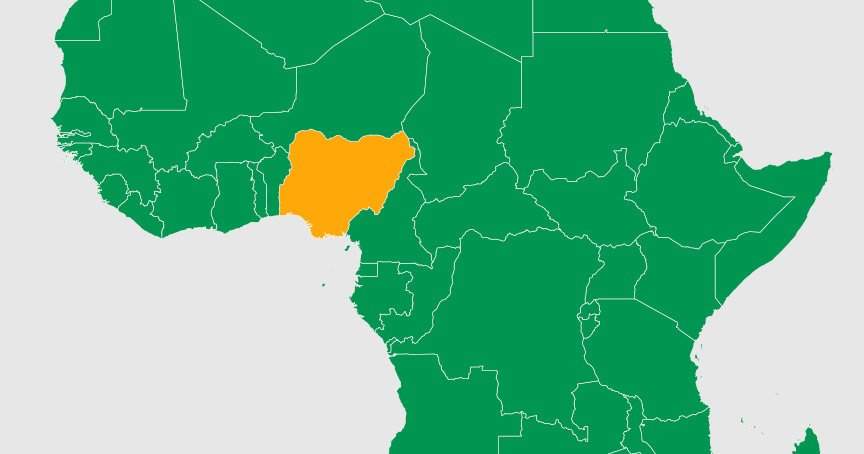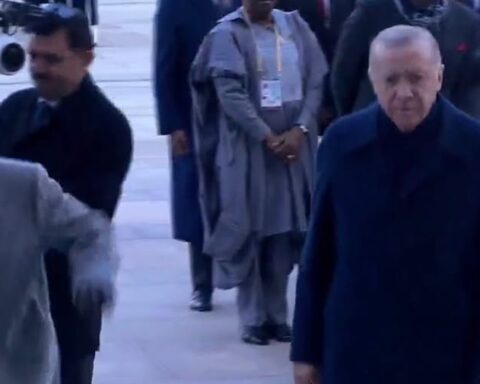By Obafemi Giwa-Amu,Esq.
A young prince was forced into life too quickly. He was forced to marry two wives. One a northerner and the other a southerner. Soon after his marriage he was made to marry the third and quickly the fourth wife. There was soon chaos in the palace compound and to resolve it he decided to allow each wife bring in a relative to the marriage which finally got to twelve and eighteen then eventually thirty-six wives.
The princes and princesses of this royal home have been set one against the other with jealousy, hatred, murders, and a struggle of each child of the thirty-six wives trying to dominate the other. Welcome to the sovereign entity called Nigeria. We are a vocal people with very strong opinions expressed on daily basis in social media. These opinions are so fiery and it is amazing how we remain at peace…a fragile peace. Can we stand before a mirror and introspect a little? This may define our national thinking and help our younger members reach a meaningful conclusion.
*Hosea 4:6* [6] My people are destroyed for lack of knowledge. Because you have rejected knowledge, I also will reject you from being priest for Me; Because you have forgotten the law of your God, I also will forget your children. Let’s start from the beginning. Before 1914, the territory that is now Nigeria was known as the Royal Niger Company Territories, and it was divided into two separate British protectorates: the Northern Nigeria Protectorate and the Southern Nigeria Protectorate.
The name “Nigeria” was coined in 1897 but wasn’t officially applied to the combined territory until the amalgamation of the two protectorates in 1914. AMALGAMATION: In 1914, the Northern and Southern Protectorates were unified, and the resulting entity was officially named the “Colony and Protectorate of Nigeria” The British colonial authorities amalgamated the Northern and Southern protectorates of Nigeria, along with Lagos, into a single administrative entity known as the Colony and Protectorate of Nigeria.
PLEASE NOTE THE FOLLOWING POINTS:
1. Historical Context The amalgamation was chiefly a colonial administrative decision aimed at economic efficiency and governance. The British sought to streamline their control over the vast territories and to consolidate revenue collection.
2. Cultural Diversity Nigeria is characterized by a great rich ethnic, linguistic, and cultural diversity. The amalgamation brought together over 250 ethnic groups with distinct backgrounds, leading to a complex national identity. This diversity has, at times in the past, fueled tensions and today the country is boiling on all fronts as the dichotomy enlarges and leaders exploit their people out of selfish desires of personal gain into hatred. The calls are for greater autonomy or separation and sometimes even war!
3. Political Structures The governance structures imposed by the British did not necessarily reflect the traditional forms of governance of the various ethnic groups, leading to a disconnect between the governing authorities and the governed.
4. Post-Colonial Developments. Following Nigeria’s independence in 1960, the legacy of amalgamation has influenced the country’s political landscape. Conflict over resource distribution, ethnic representation, and power-sharing arrangements has led to internal strife, including a civil war (1967-1970), which was primarily driven by ethnic and regional inequalities. This led to a meeting in Aburi, Ghana on whether we should function more as a Confederation or as Federation.
5.Modern Implications* Today, Nigeria has continued to endure challenges related to its amalgamation, including questions of national unity and regional autonomy. The amalgamation has lasted over a century in formal terms, but its effectiveness and acceptability remains contested within the country.
SO WE BATTLE OVER THE SOUL OF NIGERIA AND SPEAK IN VOLATILE TERMS BRED BY THE ABOVE. THE REAL QUESTION IS HOW CAN WE LIVE IN PEACE? WE ARE BACK TO THAT SAME QUESTION THAT WAS DEBATED IN ABURI. FEDERATION, CONFEDERATION OR SEPARATION?
A confederation and a federation are both forms of political organization, but they differ significantly in structure, authority, and governance. Here are their distinctions: A. CONFEDERATION A confederation is a union of sovereign states or groups that come together for a common purpose, usually formed through a treaty or agreement. Each member retains its sovereignty and independence.
The central authority has limited powers, primarily focused on issues of mutual concern like defense or trade. Examples Historical ; Examples include the Articles of Confederation in the United States before the Constitution and the Confederation of Canada prior to the enactment of the British North America Act.
FEDERATION. A federation is a political entity characterized by a union of partially self-governing states or regions under a central government. In a federation, power is divided between the national government and the individual states. Both levels of government have their own responsibilities and authority. The central government has all authority to enact laws and make decisions that bind all states, and in Nigeria this has mostly been decisions based on whatever tribe is in power. Examples of federations include the United States under the Constitution, Canada, and Australia, where the central government and states share sovereign powers. WHITHER TO NIGERIA HAVING AN UNDERSTANDING OF THE HISTORY AND WITH THE EXPERIENCE SO FAR WE CAN FASHION OUT OUR ARGUMENTS IN A DIGNIFIED MANNER SITTING TOGETHER FOR THE BEST SOLUTIONS FOR THE ENTITY NIGERIA. WE CAN CHOOSE THE STRUCTURE WE WANT AND THE DIFFERENT POLITICAL SYSTEMS TO OPERATE AS WELL AS THE EXTENT OF GOVERNMENT POWER WITHIN EACH STRUCTURE. THE BOTTOM LINE IS LET THE KILLING OF ONE GROUP OVER THE OTHER END. THE AIM IS LET PEACE REIGN IN NIGERIA.



























